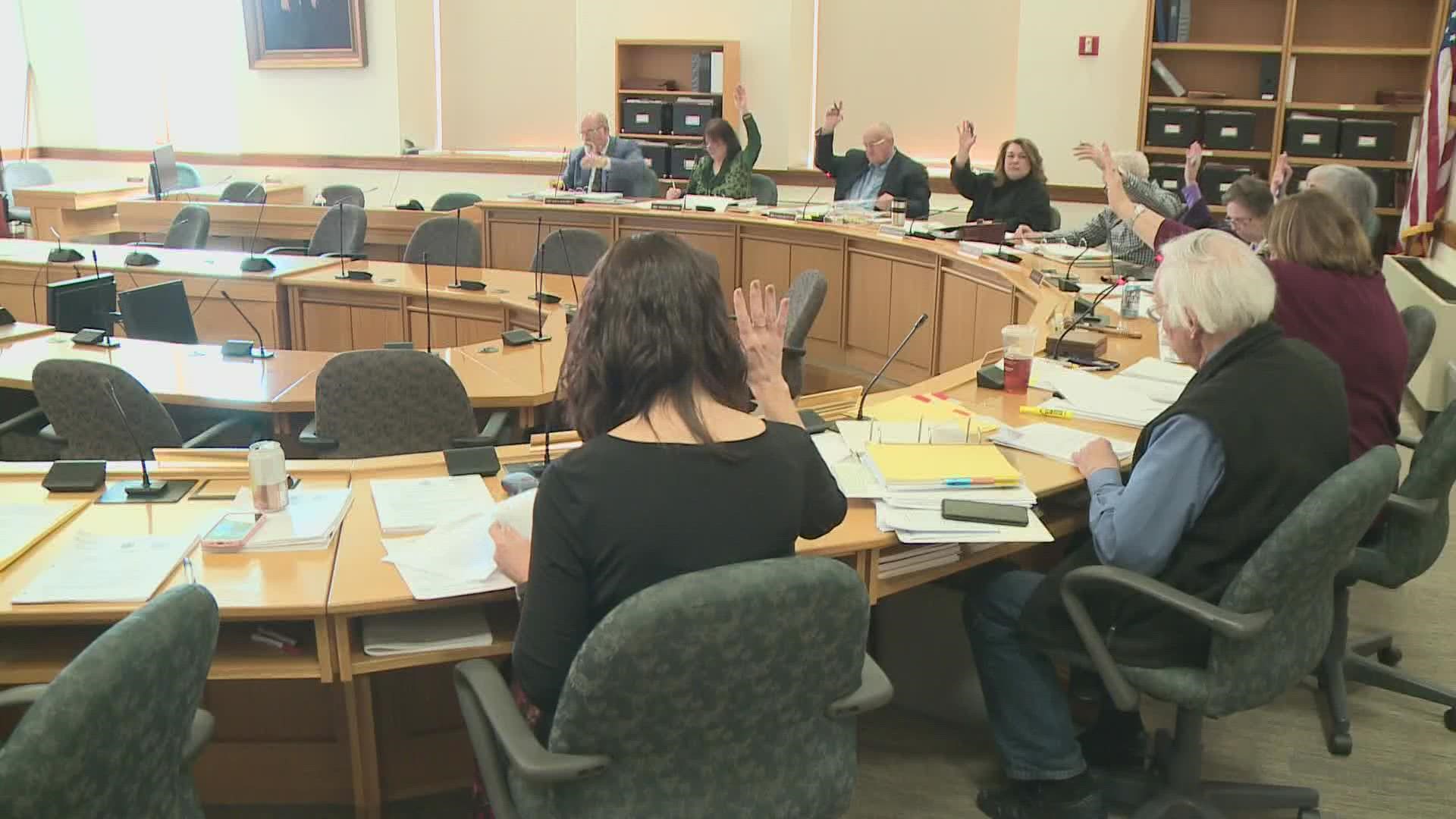AUGUSTA, Maine — One quickly following the other, legislators on the Appropriations Committee rolled through dozens of votes on budget revisions on Wednesday morning. Department after department, the votes were unanimous.
But those votes, said committee leaders, were the easy ones.
"The low-hanging fruit," Rep. Sawin Millett, R-Waterrord, said. Millett is the Republicans' acknowledged budget expert.
"From this point on, there will be debate and differences of opinion, and we will likely have divided votes," Millett said.
The legislators are working through Gov. Janet Mills' supplemental state budget, announced in February, and a so-called change package that was released Friday.
Those proposals outline the governor's plan for how the state's projected $1.2 billion revenue surplus should be used.
Mills is proposing to use over half of the surplus for a rebate to taxpayers. She wants to return the money to roughly 800,000 people by sending out $850 checks.
That plan follows a similar but smaller payment last fall, where $285 checks were sent to Mainers who had continued working through the pandemic.
Millett and Appropriations Committee co-chair Sen. Cathy Breen, D-Falmouth, said there are some in the Legislature who are arguing for changes to the check plan.
"There are a lot of different numbers floating around at this point," Breen said. "So we will see where it lands. I do think it should be targeted to more lower-income folks in Maine."
Millett said some in his party want more people to be eligible for the paments.
"There are people that feel the cut-off on income level is too low, and we ought to go higher. Obviously, those issues are all very costly. It's a moving target," Millett said.
There are also major proposals for added funding for the Maine DOT's road construction program, money for increased pay for nursing homes and direct care workers, and money to expand mental and behavioral health programs.
And Mills also proposed putting $60 million into a fund to compensate land owners for losses from PFAS chemical contamination.
Each issue has advocates inside and outside the State House calling for funding.
"This committee always gets pressure from other legislators. It's part of the job," Breen said.
All those issues, and more, will need to be negotiated by the committee over the next two or three weeks to produce a final budget.
The Legislature is scheduled to adjourn on April 20.

